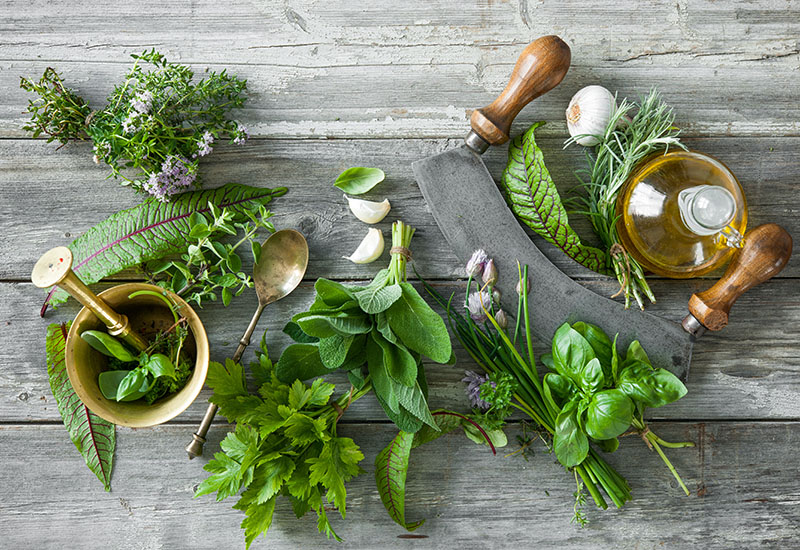The Benefits of Herbs: Unlocking Nature’s Healing Power
Welcome to our comprehensive guide on the benefits of herbs. In this article, we will explore the incredible healing properties of herbs and how they can enhance your overall well-being. With a rich history dating back centuries, herbs have been used for medicinal and culinary purposes. Today, we delve into their remarkable benefits and why incorporating them into your daily routine can have a positive impact on your health.
Enhancing Health Naturally
Herbs have long been recognized for their ability to promote health and wellness naturally. Unlike synthetic drugs, herbs offer a holistic approach to healing, targeting the root causes of various ailments. Let’s explore some of the key benefits:
Boosting Immunity
Herbs such as Echinacea, Astragalus, and Garlic have powerful immune-boosting properties. They help strengthen your body’s defense mechanisms, making you less susceptible to common infections and diseases.
Supporting Digestion
Many herbs, including Ginger, Peppermint, and Fennel, aid digestion by soothing the stomach, reducing bloating, and promoting healthy bowel movements. Incorporating these herbs into your diet can alleviate digestive discomfort and improve overall gut health.
Relieving Stress and Anxiety
Herbs like Chamomile, Lavender, and Lemon Balm have calming effects on the nervous system, helping to reduce stress and anxiety. These natural remedies can promote relaxation and improve sleep quality, allowing you to better manage daily challenges.
Supporting Heart Health
Several herbs, such as Hawthorn, Garlic, and Turmeric, have been shown to support cardiovascular health. They help lower blood pressure, reduce cholesterol levels, and improve blood circulation, reducing the risk of heart disease.
Anti-Inflammatory Properties
Herbs like Turmeric, Ginger, and Rosemary possess potent anti-inflammatory properties. These herbs can help alleviate chronic inflammation, which is linked to various health conditions, including arthritis, diabetes, and certain types of cancer.
Harnessing the Power of Herbs
Now that we’ve explored some of the incredible benefits of herbs, let’s discuss how you can incorporate them into your daily routine:
Herbal Teas
Enjoy a soothing cup of herbal tea by infusing dried herbs like Chamomile, Peppermint, or Hibiscus in hot water. Herbal teas not only offer a delightful taste but also provide numerous health benefits.
Culinary Delights
Enhance the flavor and nutritional value of your meals by adding fresh or dried herbs to your cooking. Basil, Thyme, and Oregano are just a few examples of versatile herbs that can elevate any dish.
Herbal Supplements
If you find it challenging to consume herbs through food or tea, herbal supplements are a convenient option. However, it’s essential to consult with a healthcare professional before starting any new supplements.
Aromatherapy
Experience the therapeutic benefits of herbs through aromatherapy. Essential oils extracted from herbs like Lavender, Rosemary, and Eucalyptus can be used in diffusers or added to bathwater for a relaxing and rejuvenating experience.

In conclusion, the benefits of herbs are vast and varied. From boosting immunity to supporting heart health and relieving stress, these natural wonders have the potential to improve your overall well-being. By incorporating herbs into your daily routine through teas, culinary delights, supplements, or aromatherapy, you can unlock the power of nature and embrace a healthier lifestyle. Start exploring the world of herbs today and experience their incredible benefits firsthand!
Frequently Asked Questions
1. What are the benefits of using herbs?
Using herbs can provide various benefits such as improving digestion, boosting the immune system, reducing inflammation, and promoting overall well-being.
2. Are herbs safe to use?
When used in moderation, herbs are generally safe. However, it’s important to consult with a healthcare professional, especially if you have any existing medical conditions or are taking medications.
3. Can herbs help with weight loss?
Some herbs, such as green tea and cayenne pepper, have been associated with aiding weight loss by boosting metabolism and suppressing appetite. However, it’s important to maintain a balanced diet and exercise regularly for sustainable weight loss.
4. Which herbs are good for reducing stress and anxiety?
Herbs like chamomile, lavender, and valerian root are known for their calming properties and can help reduce stress and anxiety. However, it’s always advisable to seek professional advice if you have severe anxiety or a diagnosed mental health condition.
5. Can herbs be used to improve sleep quality?
Yes, certain herbs like passionflower, lemon balm, and chamomile have been used traditionally to promote better sleep quality. However, it’s important to address any underlying sleep disorders and create a conducive sleep environment for optimal results.
6. Are there any herbs that can boost memory and concentration?
Ginkgo biloba and rosemary are commonly used herbs believed to enhance memory and concentration. However, more research is needed to fully understand their effectiveness in this regard.
7. Can herbs be used as natural remedies for common ailments?
Yes, many herbs have been used for centuries as natural remedies for common ailments. For example, ginger can help alleviate nausea, while peppermint can aid digestion. However, it’s essential to consult with a healthcare professional for proper diagnosis and advice.
8. Are there any herbs that can support the immune system?
Echinacea, elderberry, and garlic are known for their immune-boosting properties. However, it’s important to maintain a healthy lifestyle, including a balanced diet, regular exercise, and sufficient sleep, to support overall immune function.
9. Can herbs interact with medications?
Yes, some herbs can interact with medications, including prescription drugs. It’s crucial to inform your healthcare provider about any herbs or supplements you are taking to avoid potential interactions or adverse effects.
10. Can herbs be used during pregnancy?
Pregnant women should exercise caution when using herbs, as some can have adverse effects on pregnancy. It’s best to consult with a healthcare professional or a qualified herbalist before using any herbs during pregnancy.




